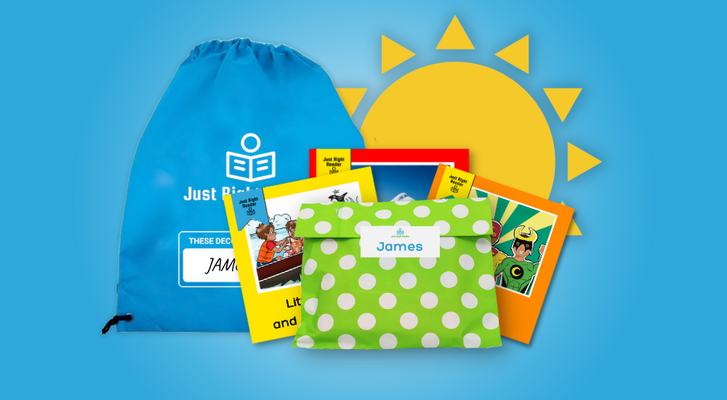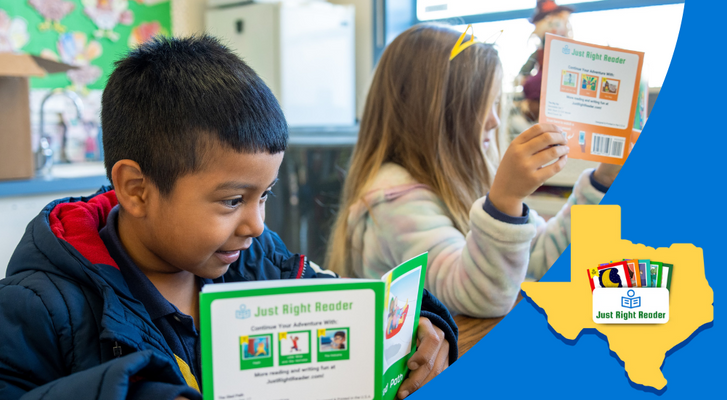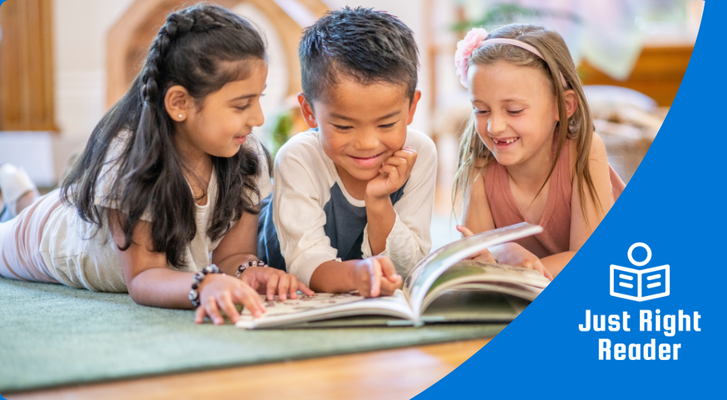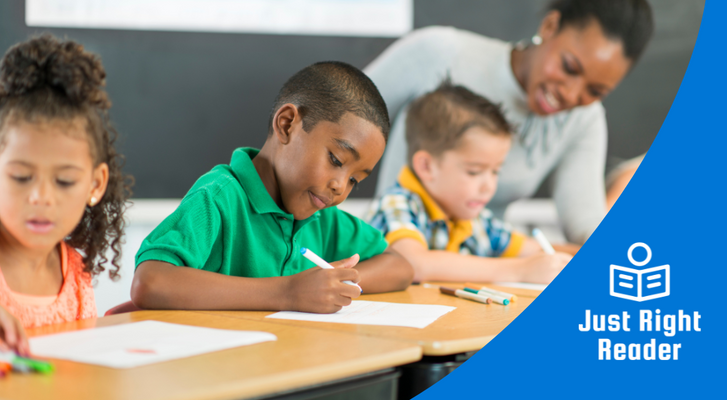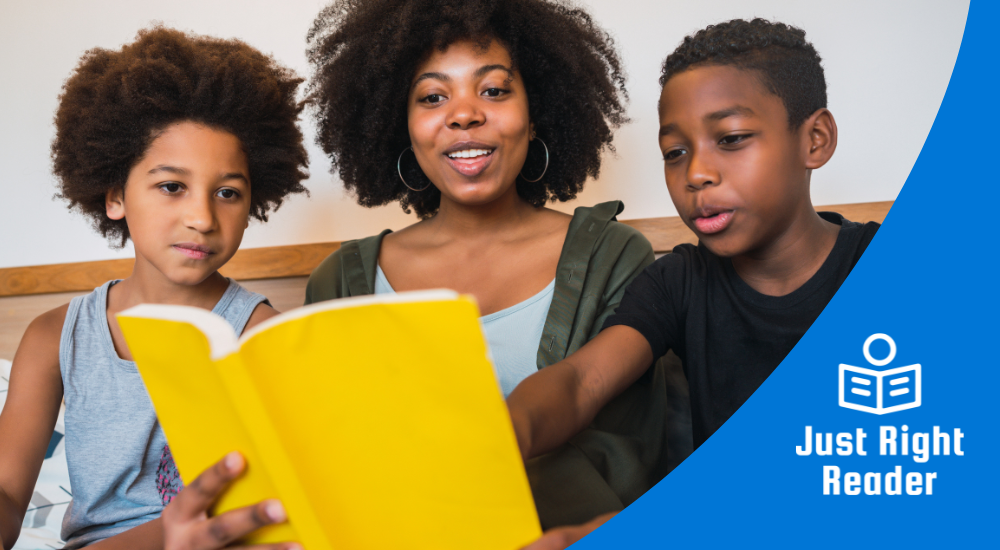
Family engagement is important for boosting children's literacy and overall academic success. Schools that actively partner with families help to create a support network that enhances children's literacy outcomes and builds a foundation for lifelong learning success.
Discover actionable strategies to enhance family engagement in your school or district, that support students as they become stronger readers.
Benefits of Family Engagement in Literacy Development
Research indicates that family involvement influences literacy development and positively affects educational outcomes.

- Academic Performance Boost: Engaged families can significantly enhance children's academic performance. Children whose parents participate in their literacy development often achieve higher academic success (Sénéchal & LeFevre, 2002).
- Motivation and Attitude: Children who see their parents engaged in reading are encouraged to develop a lifelong passion for books and learning.
- Critical Thinking Skills: Discussions about books with family members enhance critical thinking and comprehension skills (Snow et al., 1998).
- Stronger Family Bonds: Family reading sessions strengthen emotional bonds and create a supportive learning environment at home. Studies found that interactive reading activities enhance family relationships and emotional health (Bus et al., 1995).
6 Strategies to Enhance Family Engagement in Literacy
1. Effective Communication
Use various platforms like newsletters, school websites, and social media to maintain open lines of communication with families. Regular updates about student progress and tips on supporting literacy at home are important. Schools should also consider using communication apps designed to facilitate timely and personal interactions with families.
Use this guide to communicate with families about the importance of reading at home.
2. Accessible Reading Materials
Students need access to high-quality reading materials at home.
The American Institutes for Research for the Reading Is Fundamental Community Foundation conducted a comprehensive analysis of 108 studies on the benefits of providing free books for students to read at home.
The meta-analysis highlighted several key advantages:
- Enhanced development of emergent reading skills
- Increased reading proficiency
- More positive attitudes towards reading
- Extended reading time due to a greater availability of books

Researcher Dr. Paul von Hippel, a University of Texas at Austin professor, emphasizes the importance of not overestimating students' access to books at home. Often, the books available may not be engaging or suitable for a student's independent reading level.
Just Right Reader Take-Everywhere Decodable Packs ensure students access engaging, high-quality books at home, providing powerful phonics practice and fostering a literacy-rich home environment.
3. Family Reading Culture
Encourage parents to establish a culture of literacy in their homes. Strategies like setting up a daily reading routine and creating a cozy reading space promote the importance of reading.
Provide families with these resources to create a literacy-rich environment at home:
4. Interactive Reading Workshops and Events

Boost family engagement by hosting reading nights at school. Families participate in literacy-focused stations such as read-aloud corners, DIY bookmark crafting, interactive reading challenges, and a 'create your own story' table.
Schools can also host author visits or virtual sessions with authors.
These events help build a community around reading and showcase the joy and value of reading as a family.
5. Resources and Training

Empower parents by offering in-person and online workshops and resources to support their child.
This approach educates parents on research-backed educational strategies and equips them with the tools necessary to be active participants in their children's literacy development.
Incorporate hands-on sessions where parents can practice the strategies, such as using phonics games and reading apps and asking engaging questions during read-aloud to enhance comprehension.
6. Use Technology to Support Literacy

Utilize technology as a supplemental tool to bridge the gap between classroom and home literacy learning. Digital platforms can offer interactive reading experiences that significantly enhance children's phonemic awareness and reading comprehension (Korat & Shamir, 2007).
Digital Platforms for Enhanced Reading Skills
Digital reading platforms provide engaging, game-like experiences that help children practice reading skills. Activities on these sites are designed to hold children's interest while reinforcing foundational reading skills, which are critical in the early stages of reading development.
eBooks and Audiobooks
In addition to interactive platforms, eBooks and audiobooks are valuable tools for enhancing literacy. eBooks often come with built-in dictionaries and pronunciation tools, which can help children learn new words and understand how they are used in context. Audiobooks expose children to complex language and fluent reading, which is essential for developing listening skills and literacy comprehension.
Just Right Reader Decodables Support Family Engagement
Just Right Reader Take-Everywhere Decodable Packs provide personalized phonics practice extending beyond the classroom, strengthening school-home partnerships.
Grounded in theScience of Reading research and mapped to a rigorous phonics progression, our decodables provide students numerous opportunities to practice foundational reading skills in an engaging and meaningful experience.

- Structured Phonics Support: Each Just Right Reader decodable is designed to focus on the phonics patterns students are currently learning or have already learned. This targeted approach helps improve their reading skills at home, boosting their confidence and fostering a love of reading.
-
Engaging and Memorable Stories: Just Right Reader decodables feature relatable characters, colorful illustrations, and relatable stories that capture students' imaginations and keep them engaged.
-
QR Code for Phonics Lessons: Each decodable contains a QR code that links to video phonics lessons in English, Spanish, and multiple other languages. Videos make family reading time more interactive, offering short, fun phonics lessons that enhance the reading experience. This feature helps the caregiver and child grasp phonics concepts more clearly, supporting effective learning.
Incorporating Just Right Reader Science of Reading decodables into family reading routines accelerates students' reading abilities and fosters meaningful interactions around learning.
Enhance Family Literacy With Just Right Reader
Just Right ReaderBoard Books for babies and toddlers andDecodables for grades pre-K-5 turn family reading time into a fun and valuable experience, enriching literacy skills across age groups.

Our Science of Reading Decodables feature:
- 750+ titles in English and Spanish
- Engaging and relatable stories with relatable characters and vibrant illustrations that motivate students
- Evidence-based, rigorous phonics scope and sequence that aligns to all phonics programs and curriculums
- QR codes that link to memorable video lessons in English, Spanish, and multiple other languages

Our Board Books feature:
- Research-backed books aligned to your Early Learning Standards
- Vibrant illustrations and engaging stories based on developmental milestones
- Bite-sized tips, baby sign language, and videos for caregivers with every title
- Learning Together Guides equip caregivers with easy tips and fun ideas for their child’s journey to literacy.
References:
Baker, L., Serpell, R., & Sonnenschein, S. (1995). Opportunities for literacy learning in the homes of urban preschoolers.Family-School Links: How Do They Affect Educational Outcomes?, 98-112.
Bus, A. G., Van Ijzendoorn, M. H., & Pellegrini, A. D. (1995). Joint book reading makes for success in learning to read: A meta-analysis on intergenerational transmission of literacy.Review of Educational Research
Korat, O., & Shamir, A. (2007). Electronic books versus adult readers: Effects on children's emergent literacy as a function of social class.Journal of Computer Assisted Learning, 23(3), 248
Mapp, K. L., & Kuttner, P. J. (2013). Partners in education: A dual capacity-building framework for family-school partnerships.S. Department of Education.
Sénéchal, M., & LeFevre, J. A. (2002). Parental involvement in the development of children's reading skill: A five-year longitudinal study.Child Development.



